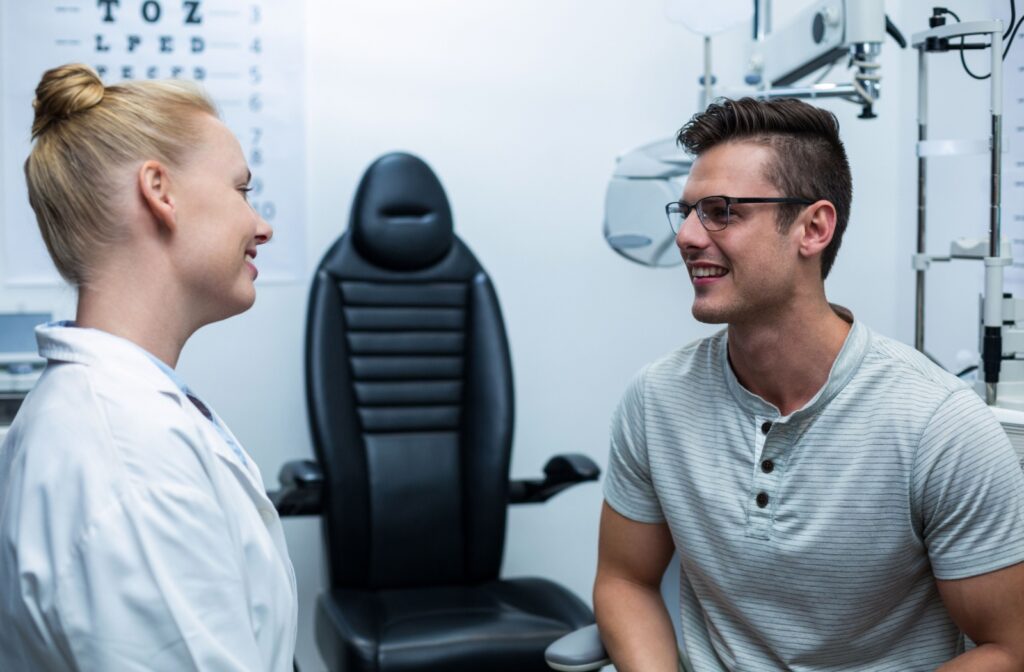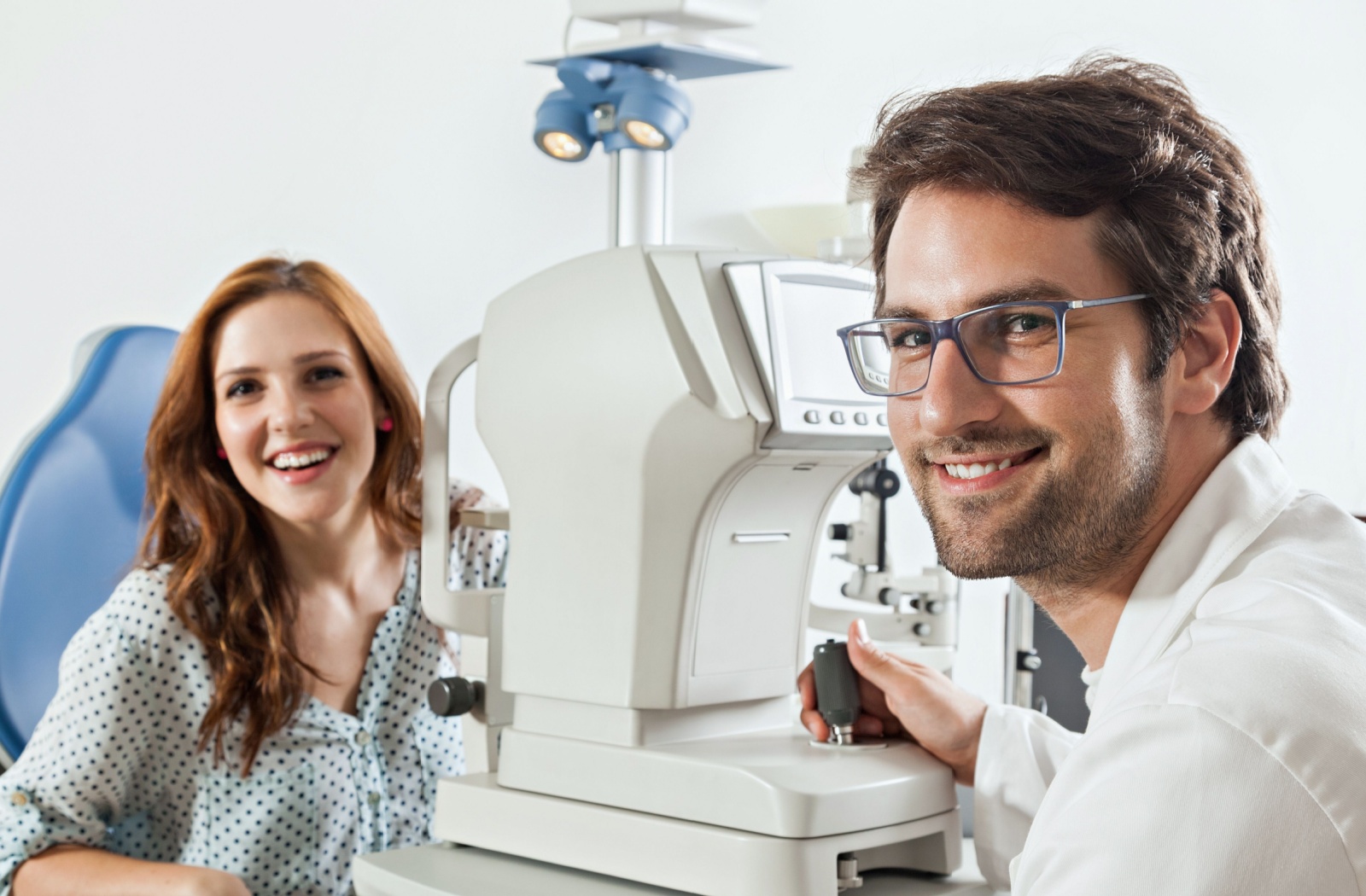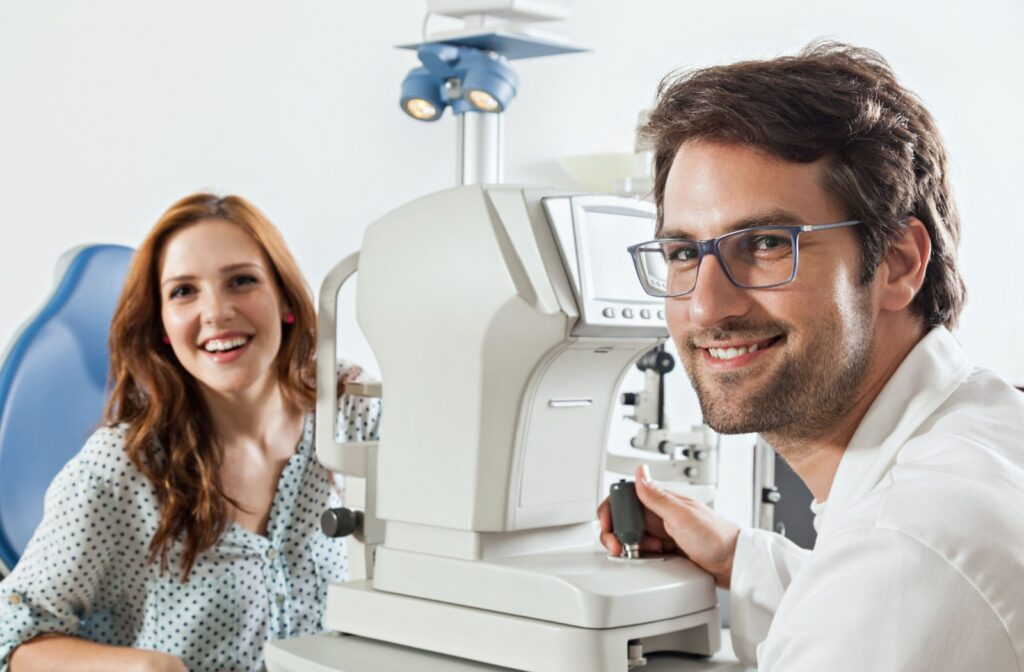A comprehensive eye exam offers more than just a check on how you see—it provides a full assessment of your eye health and can uncover early signs of vision-related issues. One of the key advantages of these exams is the opportunity to detect potentially serious eye conditions before they progress.
Some of the conditions that can be identified during an eye exam include:
- Refractive errors (like nearsightedness or farsightedness)
- Cataracts
- Glaucoma
- Diabetic retinopathy
- Macular degeneration, among others
Staying on schedule with routine eye exams plays a crucial role in preserving your vision and identifying health concerns early.
Why Eye Exams Are Essential
A comprehensive eye exam does so much more than determine whether you need glasses or contact lenses. It allows your optometrist to examine your eye health in detail, assess how well your eyes function, and even spot early signs of diseases.
Many conditions that affect your vision and well-being often progress silently, without noticeable symptoms. Regular eye exams can detect these issues early, allowing for timely treatment and, in many cases, better outcomes.
Conditions Your Eye Doctor Can Identify During an Exam
Refractive Errors
Refractive errors, while not technically diseases, are one of the most common vision challenges. These include:
- Myopia (nearsightedness): Difficulty seeing objects in the distance.
- Hyperopia (farsightedness): Difficulty seeing objects up close.
- Astigmatism: Blurred or distorted vision caused by an irregularly shaped cornea.
During an eye exam, we’ll perform tests like a visual acuity assessment and refraction test to diagnose these errors. If needed, we’ll recommend corrective measures such as glasses, contact lenses, or even laser eye surgery for adults.
Cataracts
Cataracts are a prevalent age-related condition where the lens of your eye becomes cloudy, causing blurry or misty vision. An eye exam can detect the early stages of cataracts before they significantly impact your daily life.
We’ll monitor your cataracts over time and recommend options like updated glasses prescriptions or, when necessary, cataract surgery. Early detection can ensure you maintain clarity in your vision for as long as possible.
Glaucoma
Glaucoma is often referred to as the “silent thief of sight” because it can develop without noticeable symptoms until significant vision loss has occurred. It is a group of eye diseases that damage the optic nerve, usually due to increased pressure inside the eye.
During your eye exam, we will check your eye pressure and assess the health of your optic nerve. Early detection is critical, as timely treatment can slow or prevent further damage. Treatments may include medicated eye drops, laser procedures, or other advanced therapies.
Diabetic Retinopathy
For people with diabetes, diabetic retinopathy is a constant concern. This condition occurs when high blood sugar levels cause damage to the blood vessels in the retina, which can lead to blurred vision or even permanent vision loss.
A diabetic eye exam allows us to detect changes in the retina, such as swelling or the growth of abnormal blood vessels. If we spot diabetic retinopathy early, we can work with you and your healthcare provider to manage the condition and protect your vision.
Macular Degeneration
Macular degeneration is an age-related condition that affects the macula, the part of the eye responsible for central vision. This condition can cause blurry or distorted vision and, in some cases, a complete loss of central vision.
Eye exams can identify early signs of macular degeneration, allowing for proactive management. Treatments such as lifestyle changes, specialized injections, or laser therapies can help slow its progression and maintain your quality of life.

The Importance of Regular Eye Exams
At Envision Eye Care, we know how crucial regular eye exams are for safeguarding your vision and overall health. These routine checks:
- Detect issues like glaucoma, cataracts, or retinal diseases before they become severe.
- Monitor changes in your vision and update prescriptions as needed.
- Uncover potential systemic health problems like diabetes or high cholesterol.
Even if you feel your vision is fine, it’s still important to schedule routine exams to catch early changes that you may not notice on your own.
What to Expect During an Eye Exam
If it’s your first visit or if you haven’t had an eye exam in a while, here’s what you can expect during your appointment:
- Visual acuity test: Measures how well you see at various distances.
- Refraction test: Determines if you have a refractive error and identifies the ideal prescription for glasses or contacts.
- Eye movement test: Assesses how well your eyes work together and follow moving objects, particularly important for children.
- Slit lamp exam: Uses a specialized microscope to examine internal eye structures like the cornea, iris, and lens.
- Retinal exam: Evaluates the back of your eye, looking for signs of diseases like diabetic retinopathy.
- Glaucoma test: Measures the pressure inside your eye and examines the optic nerve.
All of these tests are non-invasive and designed to ensure that your eyes are functioning at their best.
Take the Next Step to Protect Your Vision
Your vision is one of your most precious resources. At Envision Eye Care, our compassionate team is here to support you on your eye health journey. We specialize in providing comprehensive eye care tailored to your unique needs. If it’s time for your next eye exam, don’t wait. Book your appointment with us today and take the first step toward preserving your eyesight for years to come. Together, we can ensure your eyes remain your window to the world.



